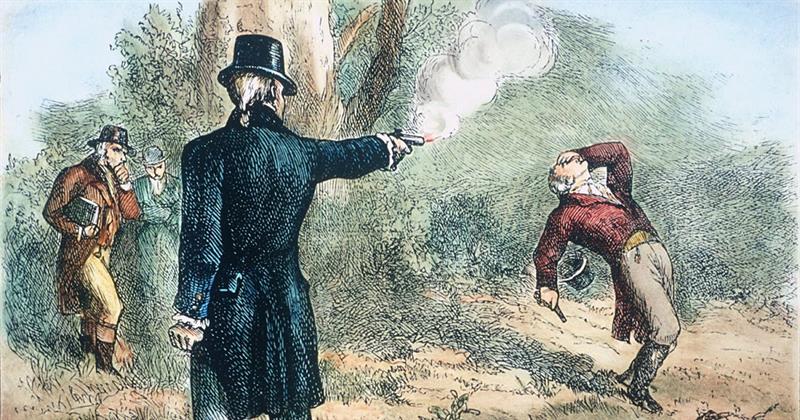This piece was inspired by an episode of The Cooler, KQED’s weekly pop culture podcast. Give it a listen!
What We Can Learn About Trump From His Favorite President, Andrew Jackson
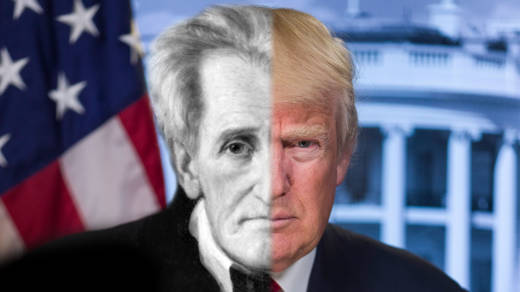
You may have noticed a few changes in the White House in recent months. While Obama was off sporting a backwards baseball cap and kite surfing (he's earned it), Donald Trump did a little bit of redecorating.
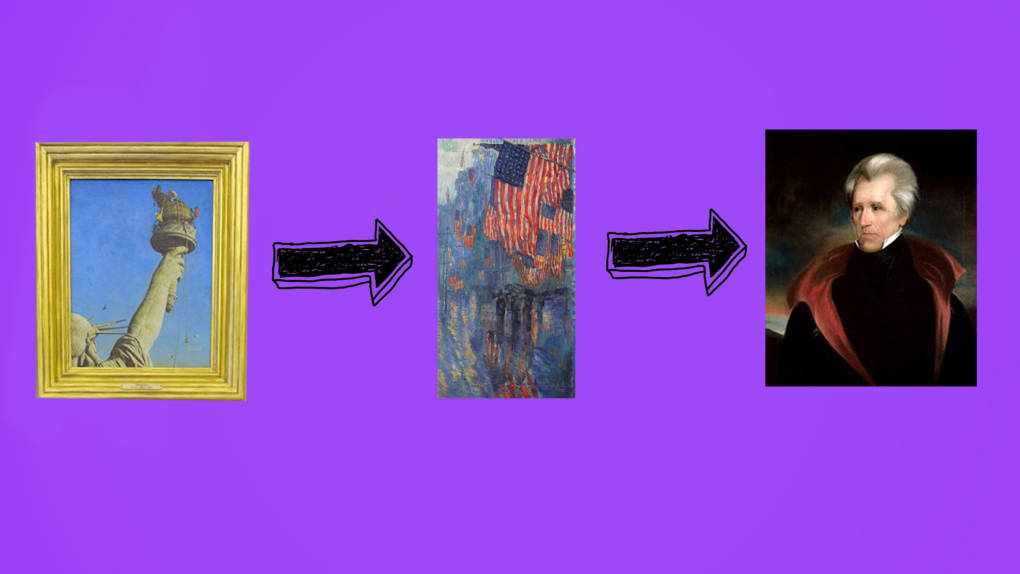
A small change on the walls of the Oval Office caught my eye the other day: the portrait hanging next to the president’s desk. In that spot, Obama originally had a photo of the Statue of Liberty’s torch, and, later, Childe Hassam's patriotic painting of American flags, The Avenue in the Rain.
Lady Liberty is now gone (take that as you will), along with Hassam's painting. Their replacement? A portrait of the controversial Andrew Jackson, the seventh President of the United States who graces the $20 bill (until Harriet Tubman bumps him off).
Trump is a fierce defender of Andrew Jackson -- his advisers have even made public comparisons of Trump as the modern-day Jackson -- so let's take a look at Jackson's life to get a better understanding of why Trump reveres this particular president so much, and what that says about who he is.
Let's start at the beginning (a very good place to start):
Jackson came from nothing
Andrew Jackson was born somewhere along the North and South Carolina border in 1767, while his mother was on a long journey back from his father's funeral. Jackson's father was a struggling farmer, who didn't have much of anything to leave his wife and children. Trump, on the other hand, inherited millions from his father.
Jackson served in the Revolutionary War as a teen
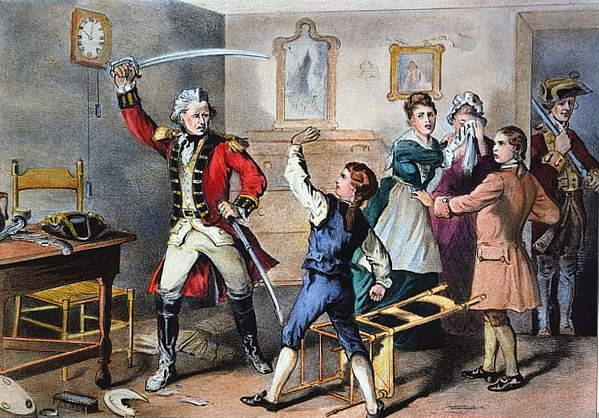
Most of us spend puberty fighting with our parents. Andrew Jackson spent his awkward teen years fighting the British during the Revolutionary War (as a courier, but still). At the age of 13, he was captured and, while in captivity, was not treated well. When a British general ordered Jackson to polish his boots, Jackson, who was known for being bold and having a temper, essentially told this Brit to go f--k himself. This did not go over well. The British officer took out a blade and slashed Jackson, leaving a scar that would last the rest of his life. Trump has no battle scars, thanks to deferring military service five times (four for college, one for bad feet).
Jackson was known as a troublemaker
By the age of 15, Jackson's mother and both of his brothers had died. Alone in the world, he blew off steam by getting into trouble. One of his neighbors testified to this: "Andrew Jackson was the most roaring, rollicking, game-cocking, horse-racing, card-playing, mischievous fellow that ever lived in Salisbury." Trump's youth was reportedly marked by similar exploits: pulling girls' hair, throwing rocks at neighbors, almost pushing a classmate out of a second-story window, even hitting teachers. Trump got into trouble so regularly that his friends called detention "DT" (short for Donny Trump). Trump himself admits in his memoir The Art of the Deal that his main focus during his early years was "creating mischief."
Jackson became one of the country's first celebrities
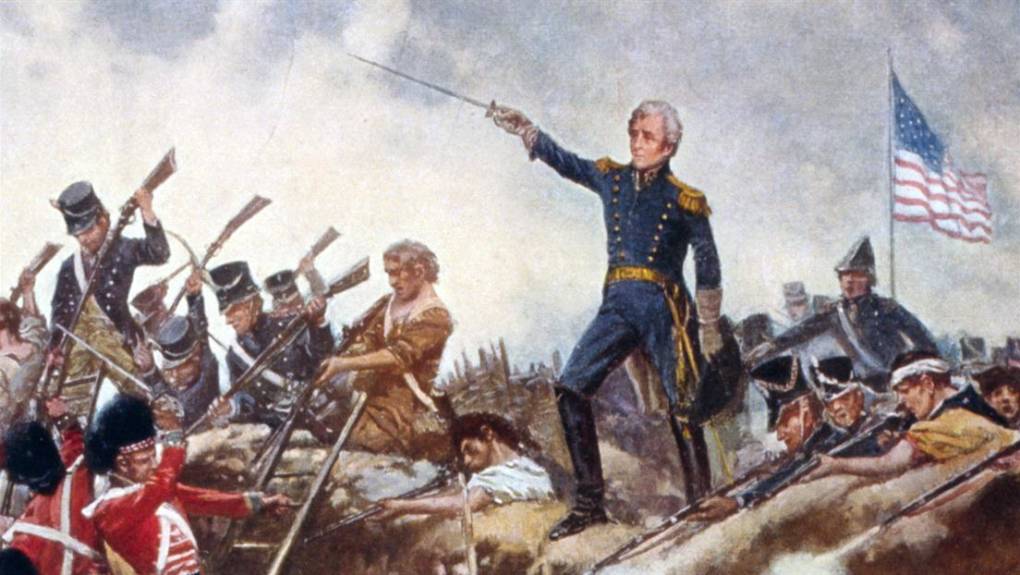
After a short tint in the Senate (he resigned one year into his term because he didn't like meetings), Jackson got involved in another war, this time the War of 1812. He won a decisive victory in the Battle of Horseshoe Bend, killing more Native Americans than on any other day in U.S. history (pause for side-eye). With the help of free African Americans, Native Americans, and -- randomly enough -- French pirates, he went on to pull a major upset in the Battle of New Orleans, changing the course of the War of 1812. SAT analogy: George Washington was to the Revolutionary War as Andrew Jackson was to the War of 1812.
News of the victory spread quickly, and Jackson became a bona fide celebrity, inspiring songs, clubs, holidays, and more. Again, there's no Trump parallel because bad feet, but the following quote -- said about Jackson -- rings true for both men: "He was a cultural force before he was a political force."
Jackson branded himself as a voice for the common man
Following his war hero fame, Jackson ran for President against John Quincy Adams, the acting Secretary of State. Adams was intelligent, had a history of overseas diplomacy, and intimately knew what goes into the role (his father, John Adams, was a former president and one of the Founding Fathers). Jackson used these qualities as proof that Adams was a corrupt insider who was out of touch with the people. Jackson argued that his lack of a resume proved that he could be a champion for the common man.
The similarities between the 1824 and 2016 elections are obvious, but the results differ. Despite winning the popular vote, Jackson did not manage to get a majority in the Electoral College. Giving in to the widespread opinion that Jackson was unfit to serve as the President (Thomas Jefferson called Jackson "a dangerous man"), the House of Representatives elected Adams.
Jackson wasn't opposed to winning by smear campaign
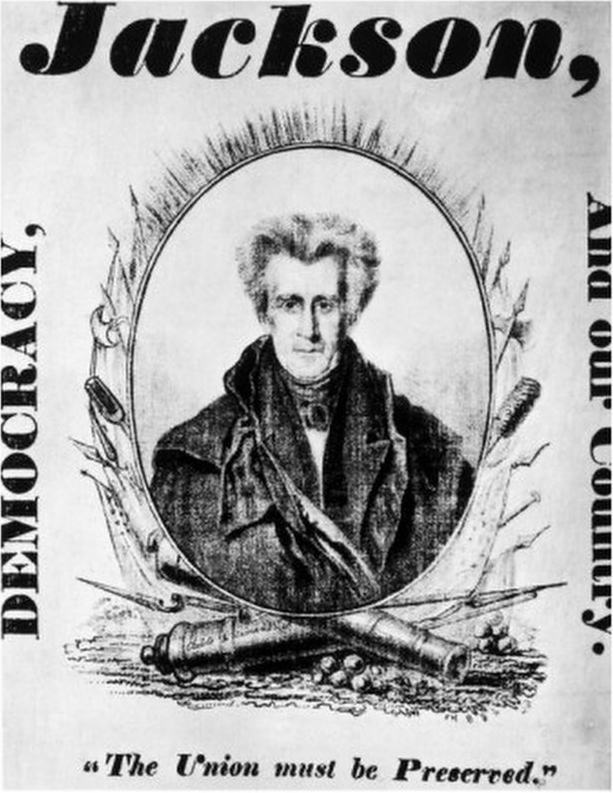
Jackson and his supporters believed that the election was stolen from him, so he ran again in 1828, a campaign that was to become the dirtiest and most brutal the country had ever seen. News broke that Jackson's wife was in fact married to another man when she started shacking up with him decades earlier. Jackson was irate and decided to fight fire with all the embers of Hell: he accused Adams of living in sin, gambling, breaking the Sabbath, pimping out an American virgin for the pleasure of a Russian czar, among other things. He also kept up the anti-intellectual strategy from the previous election; one of his slogans was "Vote for Andrew Jackson who can fight, not John Quincy Adams who can write." The election turned from disagreements over actual issues to bitter fights over personal lives. Jackson won decisively.
Jackson knew how to throw a party
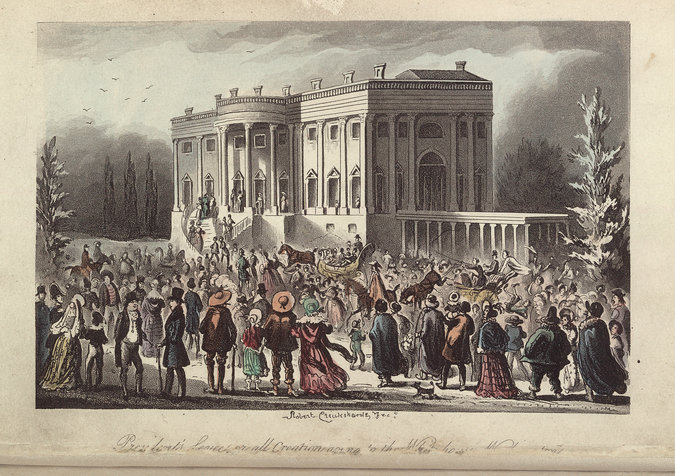
Upon his inauguration, Jackson introduced an open-door policy at the White House. Any citizen could come inside and party with him. Things quickly got out of hand. First-eye accounts include stories of broken china, scary drunks, bloody noses, fainting women, and the use of windows as entrances and exits. Booze was eventually moved to the lawn to convince people to leave the White House. Trump's Inauguration festivities were... not like that.
Jackson took politics personally
Jackson had a thing for taking it outside. He was involved in an estimated 103 duels, often because someone said something negative about his wife. His love of revenge and settling scores carried over into his time as President.
Upon taking office, Jackson fired his enemies (he removed more government employees -- many of whom had served since George Washington's terms -- than all of his predecessors combined) and hired his unqualified friends in their place, creating what came to be known as the "spoils system." Jackson also consulted with a group of unofficial advisers that came to be known as his "Kitchen Cabinet." (Hello, Jared Kushner!)
When Congress passed a bill to renew the Second Bank of America's charter, thanks to strong advocacy from one of Jackson's worst enemies, John C. Calhoun, Jackson vetoed it, claiming "the Bank is trying to kill me, but I will kill it." He deemed the bank president, Nicholas Biddle, an enemy of the people, and ordered all of the country's funds to be taken out of the bank. His Treasury Secretary refused to do so because it was illegal. So Jackson fired him and hired another man, who also refused. Jackson fired him too and finally found a man who would do it anyway. This kind of maneuver wouldn't happen again until Watergate.
Even after his time in office was up, Jackson still held a grudge or two: "After eight years as President, I have only two regrets: that I have not shot Henry Clay or hanged John C. Calhoun."
Would you be surprised if Trump said the something similar about Rosie O'Donnell and Hillary Clinton at the end of his tenure?
Jackson did not play by the rules
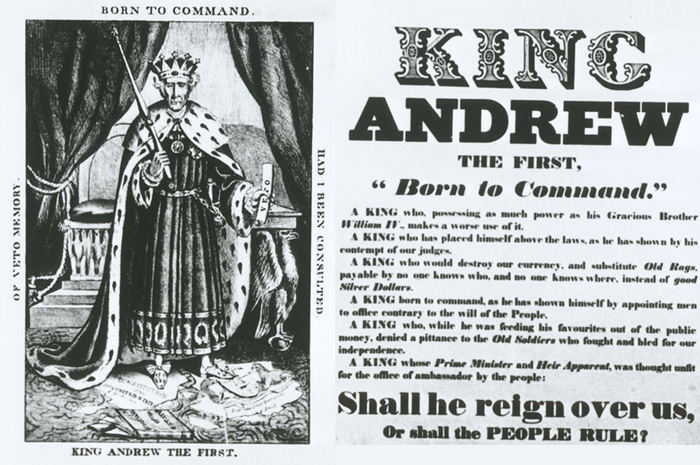
Pre-presidency, General Jackson invaded what is now Florida without permission and executed two British soldiers for helping the Native Americans. Despite the illegality of this, President James Monroe refused to censure Jackson. Jackson was also known to execute his own soldiers for insubordination. While Trump hasn't executed anyone (yet?), he did attack Syria without approval from Congress.
Jackson was racist
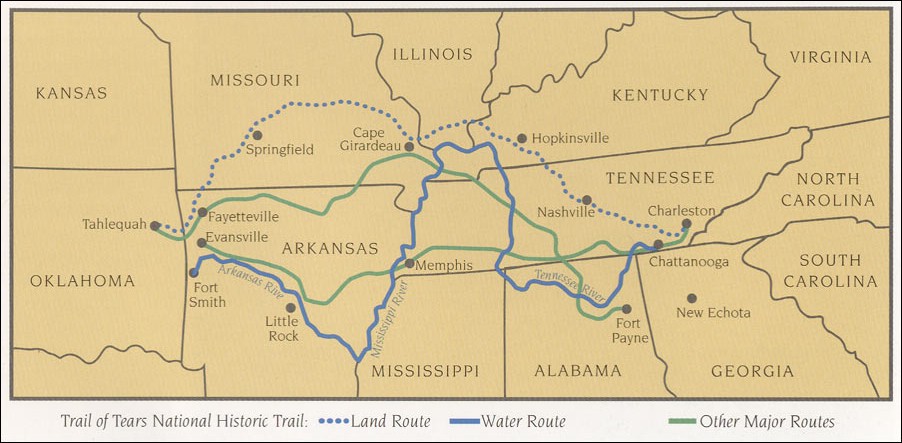
As if owning over 100 slaves wasn't bad enough, Jackson also was the mastermind behind the Indian Removal Act, which called for the eviction of Native Americans east of the Mississippi River from their ancestral lands. The Cherokee sought help from the Supreme Court, which ruled in their favor. Jackson's alleged response: "[Chief Justice] John Marshall has made his decision; now let him enforce it!" Ignoring the whole business of the judiciary being an equal branch of government, Jackson ordered that the Native Americans be rounded up at gunpoint, have their property seized, and be put on a forced march to Oklahoma during the winter. One out of four Cherokee died en route. Jackson gave their homeland to white farmers, which they turned into slave plantations. Trump has his own prejudices based on religion, race, sexuality, and gender. Hopefully nothing he or any future President does will be as contemptible as the Trail of Tears.
Jackson was a hothead
Described as a "cantankerous, iron-willed, intimidating manager," Jackson used his temper as a weapon. You can probably imagine what his tweets would have been like.
Jackson was inconsistent
Jackson often found himself in contradiction. He grabbed more and more executive power for himself, while insisting he was doing so for the people. He hated the idea of a monarch forcing his will on his subjects, yet vetoed more legislation than anyone before him. He wanted limited government, unless it stood in the way of what he wanted to do. Needless to say, he wasn't too worried about consistency. Judging by his first 100 days, neither is Trump. China was a currency manipulator, until it wasn't. NATO was obsolete, until Trump changed his mind. Intervening in Syria was the worst decision ever, until it was a good one. The electoral college was undemocratic, until it was genius:
You get the idea.
Lining all these similarities in a row, it's easy to see why Trump reveres Jackson. In a way, it's a form of self-love. Now the question is: Will history continue to repeat itself? Or have we, as a nation, evolved enough to hold this kind of person accountable? Stay tuned.
